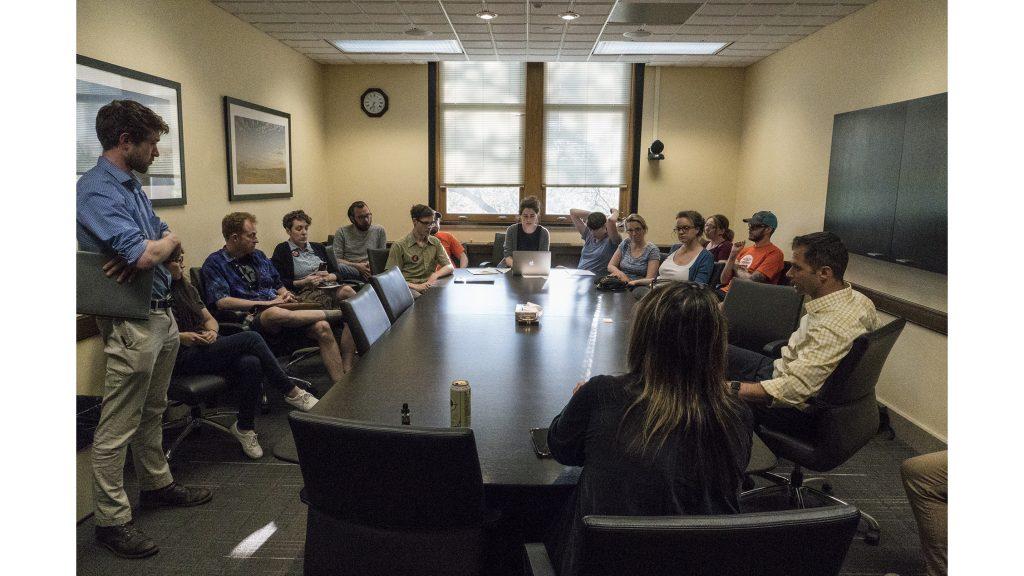Protests came to University of Iowa President Bruce Harreld’s office in the form of a sit-in on Wednesday. Nontenure-track faculty members occupied his office in the interest of the university meeting a set of demands.
The list of demands include standard yearly pay raises to keep up with the costs of living, health insurance, parental leave, and retirement benefits. The full list of demands can be found on the Service Employees International Union Iowa Faculty Forward website.
The sit in was resolved with a meeting scheduled with the nontenured faculty and Harreld, according to Riley Wilson, a student involved with the sit in.
Lecturer Elizabeth Weiss, a sit-in protester, said she is frustrated by the treatment of nontenure faculty members on campus.
“We are treated as contingent to the mission of the university when actually we are essential,” Weiss said. “Our work is important, we care about it and do it well, and now we’re doing it in conditions that aren’t sustainable.”
On April 18, Harreld received a letter from the nontenure faculty organizing committee demanding a meeting, and because it was an issue pertaining to faculty, asked Associate Provost Kevin Kregel to reach out to the group. The letter was co-signed by 205 nontenure faculty.
Kregel, along with Faculty Senate President Russ Ganim and Assistant Provost for Faculty Diane Finnerty, met with the organizing committee on April 23 and asked the members to direct budgetary concerns to college leadership.
On May 4, Kregel emailed the organizing committee to recommend forming a committee to address the nonbudgetary issues following university policies and procedures starting in the beginning of the fall 2018 semester.
“People have had a lot of grievances for a long time, but we’ve been relatively isolated or siloed and didn’t know other people have the same issues as us,” said Brooke Larson, a visiting assistant professor of linguistics.
The UI released a statement on the sit-in protest stating, “Adjunct and nontenure track faculty are vital to the University of Iowa’s mission, providing specialized contributions in teaching, research, or service. Colleges have and will continue to address issues that hinder competitiveness with our peer universities.”
In an interview with The Daily Iowan, Harreld addressed questions concerning the discontent among nontenure faculty.
“The last thing any of our deans want me to do is to actually wave a wand and actually change salaries and change benefits,” Harreld said. “These decisions are collegiate in nature.”
Megan Knight, who has been part of the Rhetoric Department as nontenure faculty member for 20 years and works as an associate professor of instruction, told the DI in an email that in her time, she helped bring about departmental changes, including getting nontenured faculty to vote on departmental issues.
Knight said the committee members were rebuffed when they presented their demands on April 23 and said the administration is giving them the runaround.
“They play the blame game with each other and are leading us on a chase through the massive UI bureaucracy,” Knight said in the email.
The Office of Strategic Communication said a recent focus on faculty salary resulted in an average faculty salary increase of 2.6 percent for fiscal 2017 and an average staff salary increase of 2.5 percent for non-bargaining staff.



